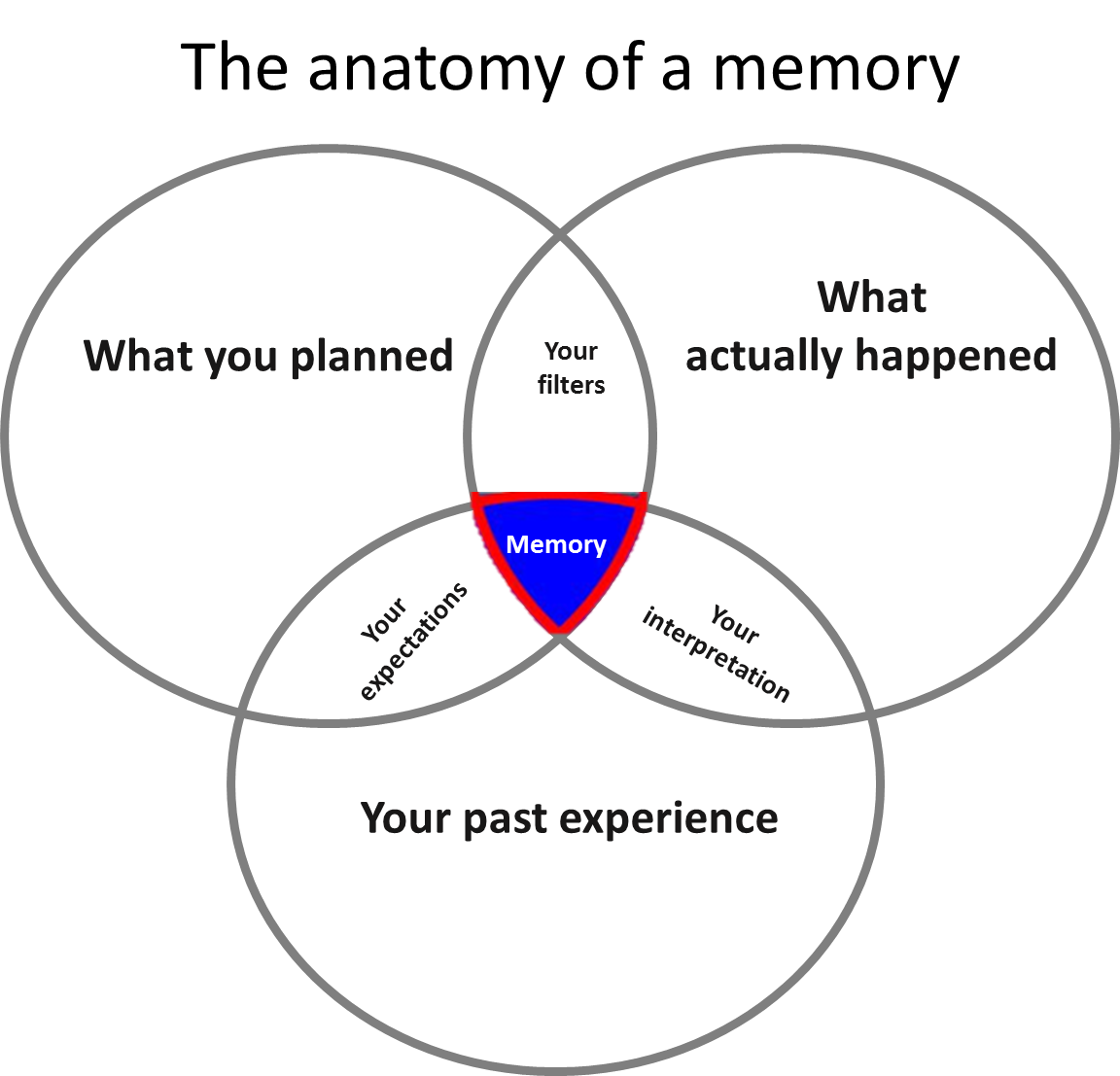The other day I had an unsettling experience. I saw a tourism ad for the Greek Island of Santorini. It immediately reminded of the wonderful visit that I had to the Island. My memory was so vivid it seemed as if the trip just happened. I remembered being in a cab traveling up the Greek coast. I remembered seeing the beautiful buildings on the island. I remembered. . . that’s it. I couldn’t remember anything else.
I was certain that I had visited the island. How could I have such a vivid memory of going on the trip but not remember any details? I couldn’t believe that I forgot so much. It turns out, I never went to Santorini.
So where did my memory come from? It came from a tour that I took of Greece. Part of the tour involved a drive up the coast – I had that part right. At that point in the tour the driver gave me a tourism guide and pointed out the pages that described Santorini. He talked for quite a while about the island and encouraged me to make time for it during my next trip to Greece. All the while, I was looking at the pictures of Santorini.
Our memories aren’t as exact as we think. To conserve energy and space, our brains tend to compress and combine our memories. In their book, The Invisible Gorilla, Daniel Simon and Chris Chabris discuss what they call “the illusion of memory”. Often the things you talk about or plan on doing get combined with the things that you actually did. To make matters worse, all of that gets passed through the filter of what you expected to happen.
What we remember is often an imperfect glimpse into what actually occurred. This might explain why our “memories” of an event can be so different from those of someone else who experienced the exact same thing.
It’s important to proactively manage your team’s collective memory. Take time after a meeting to recap what was discussed and agreed upon. Don’t just send that information to your team; ask them to confirm whether their recollection matches yours. If not, you may need to follow up to ensure that what you remember being discussed actually was discussed.
We like to think that our memories are infallible. There is nothing more personal or intrinsic than our memories. Don’t fall into the trap. Treat your memories like any other data point. Seek validation, triangulation, and confirmation. Otherwise, you may find yourself remembering a journey that you never took.



